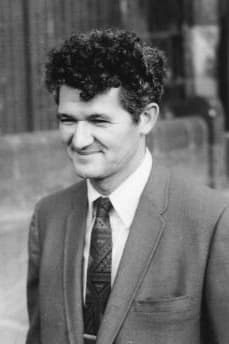Peter Lax (1926–2025)
The EMS is very sad to hear of the death of Peter Lax, and we send our condolences to his family, friends, colleagues, and students.

Lax, who was 99, served as Courant Institute director from 1972 to 1980 and was a distinguished professor emeritus at NYU, where he spent his entire career after completing his BA ('47) and PhD ('49) there. His extraordinary contributions to mathematics earned him the National Medal of Science (1986), the Wolf Prize (1987), and the Abel Prize (2005).
Born in Budapest, he emigrated to the United States in 1941 and became one of the most influential mathematicians of his generation. The Norwegian Academy of Science and Letters described him as "the most versatile mathematician of his generation", highlighting his groundbreaking work in the 1950s and 1960s that established the foundations for the modern theory of nonlinear equations for hyperbolic systems. His introduction of the widely used Lax-Friedrichs and Lax-Wendroff numerical schemes revolutionized computational methods with practical applications ranging from weather prediction to airplane design. The "Lax Equivalence Theorem" became a cornerstone of modern numerical analysis, while his innovative approach to "soliton" solutions, rewriting equations in terms of what are now called "Lax pairs," provided a unifying conceptual framework that transformed the field.
Beyond his remarkable research achievements, Lax was deeply committed to education and generously supported younger mathematicians throughout his career, mentoring 55 doctoral students and influencing 430 doctoral descendants. His 1982 report on supercomputers, widely known as "The Lax Report," played a significant role in advancing computational research infrastructure in the United States. For more details on his extraordinary life and contributions, please visit the Courant Institute website.
Tweet Share